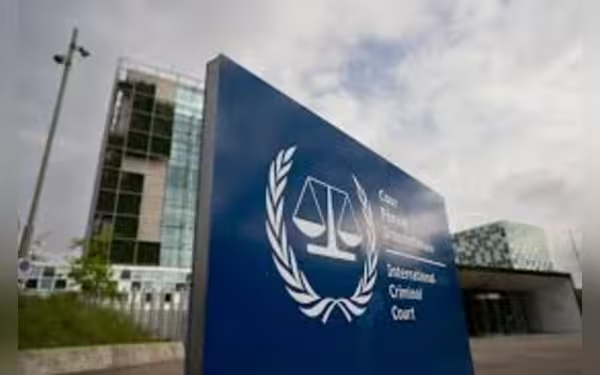Sunday, December 22, 2024 09:19 AM
UN Committee Approves Resolution for Historic Crimes Against Humanity Treaty
- UN adopts resolution for crimes against humanity treaty.
- Russia withdraws objections, enabling treaty negotiations.
- Legal experts hail resolution as a historic breakthrough.
 Image Credits: thefrontierpost
Image Credits: thefrontierpostThe UN has adopted a resolution to negotiate a treaty aimed at preventing and punishing crimes against humanity, marking a historic achievement.
The United Nations has taken a significant step towards establishing a treaty aimed at preventing and punishing crimes against humanity. This historic move comes after a key committee within the UN General Assembly adopted a resolution that sets the stage for negotiations on this much-needed international agreement. The resolution was passed late Friday, following intense discussions that involved all 193 member nations of the UN. Notably, Russia, which had initially proposed amendments that could have hindered the process, ultimately withdrew its objections, allowing the resolution to move forward.
The resolution's approval was met with enthusiastic applause, signaling a collective commitment to address the grave issue of crimes against humanity. Richard Dicker, a senior legal adviser at Human Rights Watch, emphasized the importance of this agreement, stating, "Today’s agreement to start up negotiations on a much-needed international treaty is a historic achievement that was a long time coming." He highlighted that this treaty aims to ensure that the suffering inflicted on civilians in various conflict zones, including Ethiopia, Sudan, Ukraine, and Gaza, does not go unpunished.
The proposed treaty will follow a structured timeline, with preparatory sessions scheduled for 2026 and 2027, leading to three-week negotiation sessions in 2028 and 2029. This timeline reflects a commitment to thorough discussions and careful consideration of the treaty's provisions. Dicker noted that the initial amendments proposed by Russia raised concerns about the feasibility of completing the negotiations, but the withdrawal of these amendments has paved the way for progress.
Maria Zabolotskaya, Russia’s deputy UN ambassador, stated that the country withdrew its amendments "in a spirit of compromise," although she clarified that Russia does not fully align with the consensus. This indicates a complex dynamic within the UN, where nations must balance their national interests with the collective goal of international justice.
The International Criminal Court (ICC) has been established to address major violations of international law, including war crimes and genocide. However, it currently lacks jurisdiction over nearly 70 countries, highlighting a significant gap in the global legal framework. While there are existing treaties that address war crimes and genocide, the absence of a specific treaty focused on crimes against humanity has been a notable oversight. The resolution, championed by Mexico and Gambia, along with support from 96 other nations, aims to fill this critical void.
Legal experts, including Kelly Adams from the Global Justice Center, have hailed the resolution as a "historic breakthrough." She expressed optimism that the forthcoming treaty will be robust and centered around the needs of survivors, especially in light of the increasing prevalence of crimes against humanity worldwide. Similarly, Agnes Callamard, Secretary General of Amnesty International, acknowledged the extended timeline until 2029 but emphasized the importance of delivering a viable convention that reinforces international law.
The adoption of this resolution marks a pivotal moment in the pursuit of justice for victims of crimes against humanity. It reflects a growing recognition among nations of the need to uphold universal standards and ensure accountability for heinous acts. As the world grapples with ongoing conflicts and human rights violations, the establishment of a treaty dedicated to preventing and punishing these crimes is not just timely but essential. The hope is that this initiative will lead to a future where the voices of victims are amplified, and the perpetrators of such crimes are held accountable, fostering a more just and humane world.













